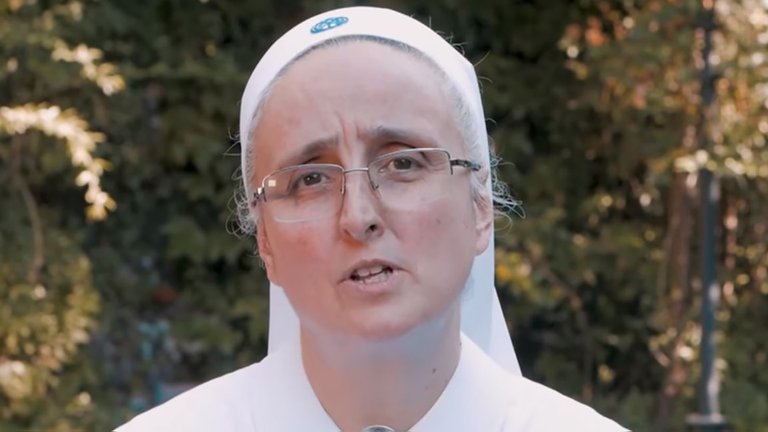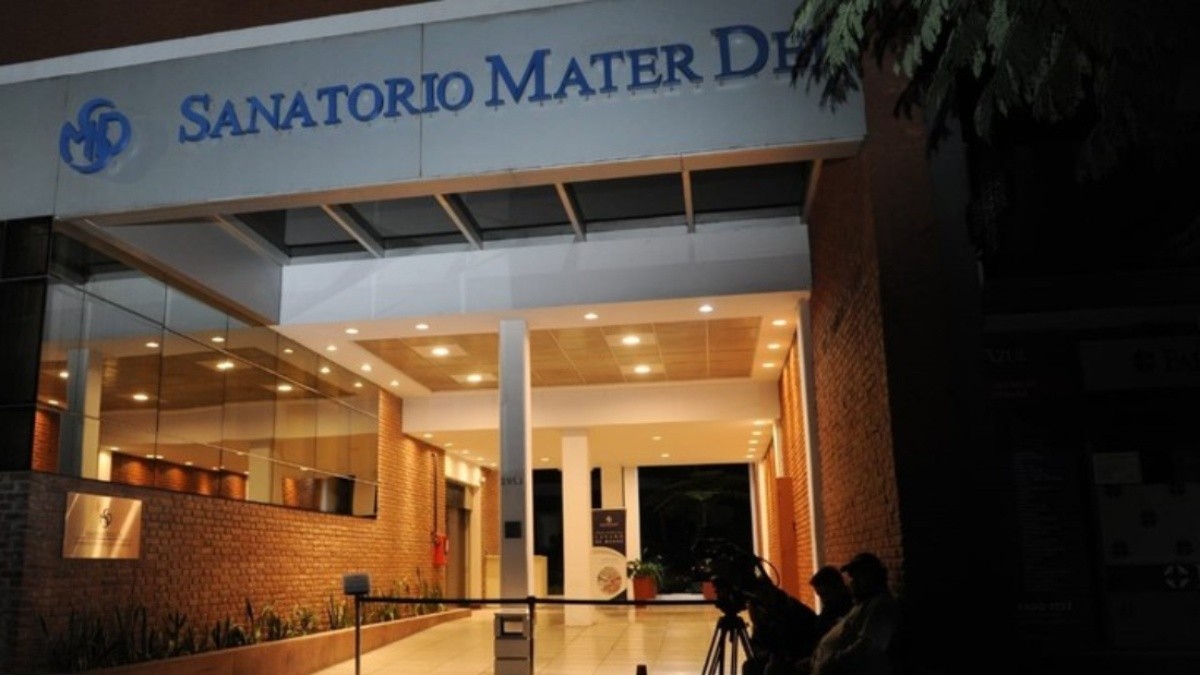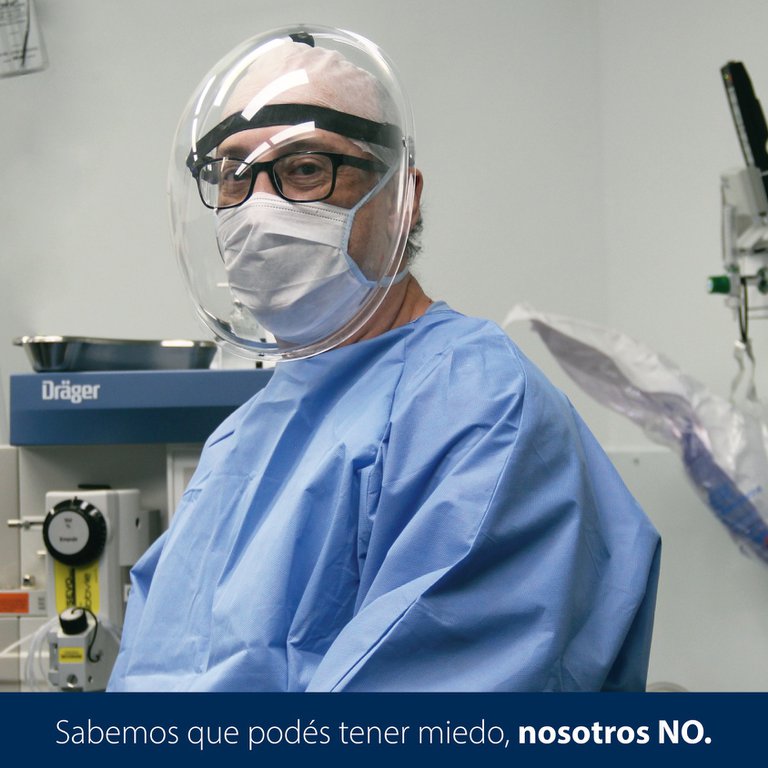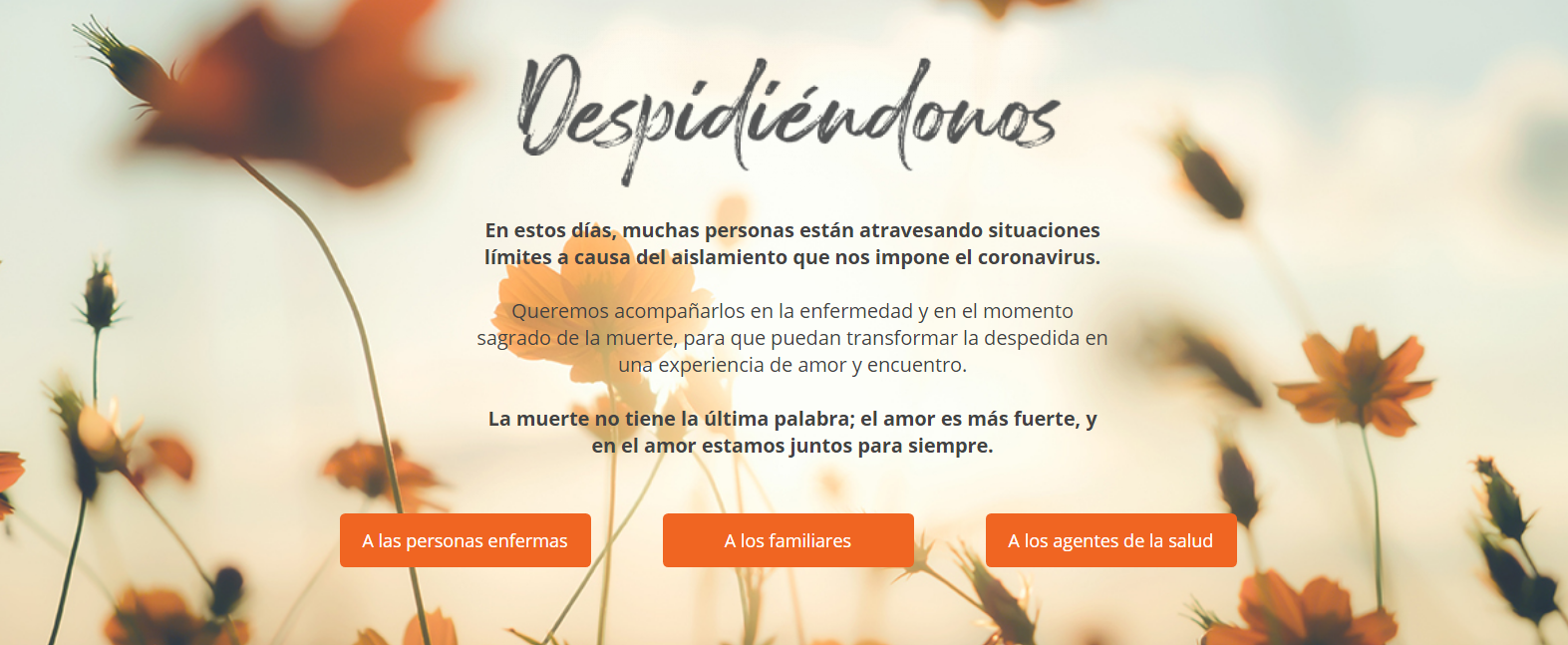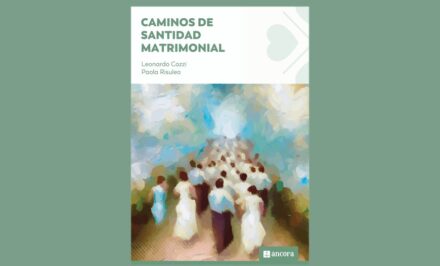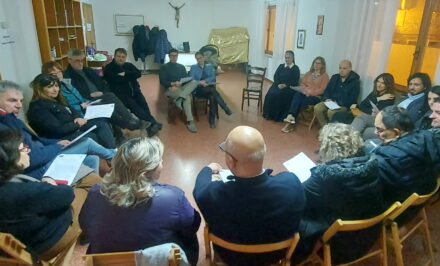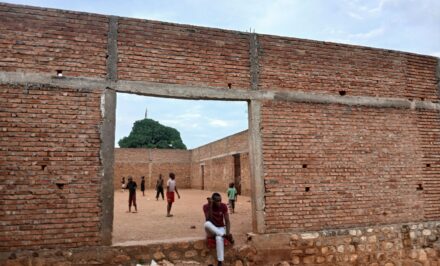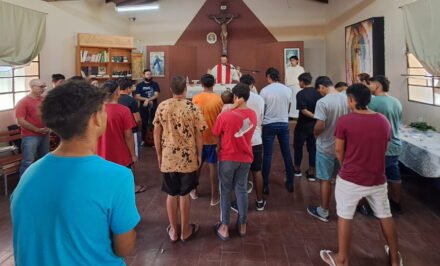ARGENTINA, Isa Ubierna with Maria Fischer •
“It’s inhumane for a person to die alone,” they say. The Mater Dei Sanatorium, of the Schoenstatt Sisters of Mary, in Buenos Aires, worked from the beginning of the coronavirus pandemic to avoid this additional and unnecessary suffering. This week, the large portals and newspapers in Argentina – La Nación, Infobae, El Litoral, Radio Rivadavia – published long articles about the “Protocol of accompaniment at the end of life”, established by the Mater Dei Sanatorium within the framework of the Program of Containment and Psycho-Spiritual Accompaniment for patients with suspicion or confirmation of COVID and their families. —
When a loved one dies, being able to give them a final goodbye means everything. But the coronavirus was and is robbing a lot of people that chance for a final goodbye. Many victims of Covid-19 are dying in hospital isolation without the company of family or friends, and often without the company of a priest. Visits are forbidden because of the high risk of contagion. ” Touch their cheek one last time, hold their hand and look at them in a dignified way. Not being able to do that is very traumatic,” said a person from the funeral home in Cremona, at the height of the pandemic in Italy. An experience shared by the entire planet as the pandemic progresses.
They may be able to be one last time with their dying family member.
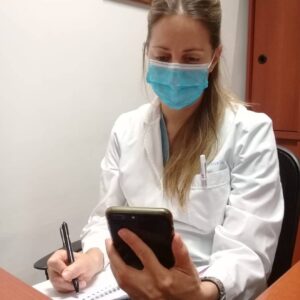 From the beginning of the pandemic in Argentina, the Mater Dei sanatorium advanced with a protocol for relatives to say goodbye to patients with coronavirus, based on the reasoning that if medical personnel can deal with infected patients without becoming infected, a person could visit his or her relative taking the same precautions.
From the beginning of the pandemic in Argentina, the Mater Dei sanatorium advanced with a protocol for relatives to say goodbye to patients with coronavirus, based on the reasoning that if medical personnel can deal with infected patients without becoming infected, a person could visit his or her relative taking the same precautions.
They then created a Containment Program for the accompaniment of the patients, which includes a special procedure for the very serious ones, called “Protocol of accompaniment at the end of life”.
This enables visits in intensive care to those who have a poor prognosis, but also allows a relative to accompany those patients who, although not in intensive care, require assistance for some reason, such as not being able to look after themselves or being very old. It does not mean that visitors are released. If the hospitalization is normal and the case is not complicated, the patient is usually left alone. But when the situation is serious and an “end of life” situation can be reached, the protocol is activated and visits are authorized with the corresponding precautions. The family member is equipped with all PPE (Personal Protection Equipment), trained and accompanied throughout the visit, to care for the patient and avoid any risk of contagion. If the patient who needs assistance is not in intensive care, the family member who accompanies him/her must isolate him/herself in the room, not move around in the common areas of the sanatorium and, when he/she leaves, do the 15-day quarantine, as he/she is a close contact patient with COVID.
The work of the health team is of great importance at this time, on the one hand, to facilitate the patient who may die peacefully and, in some way, accompanied. And, on the other hand, also so that family members can accompany and express their emotions to the patient who is in the last days of life.
So far, there have been six cases of family visits to patients with COVID-19 who have been in a situation of imminent death. Four of the cases have been in the Intensive Care Unit and the other two on the inpatient floor.
Priority is given to the possibility of family visits in awake patients rather than in sedated patients, although a vacation from sedation may be attempted in the face of family visits.
In some cases, it was not possible due to different circumstances. The condition is that the visit does not belong to a risk group and that it is emotionally stable.
How did the protocol come about?
“I started to investigate, remembers Sister M. Teresa, -and I found documents from outside that told experiences of face-to-face accompaniment. And I said to myself: if the doctors and nurses taking all the precautions hardly get infected, couldn’t they use the same elements, give training and allow the relative to approach the patient? We gathered a multidisciplinary team and thus our Containment Program was born, which allows us to accompany all suspicious and positive patients of Covid-19 since they enter the sanatorium, but it has a special protocol for death situations. We do not only take care of bodies, but also the psychic, physical and spiritual dimension: we take care of people”.
“Before Covid-19, and for many years, we proposed to humanize the intensive therapy and we made it an open door one: the family could make contact with the relative at any time and even spend the night,” explains Bernardo de Diego, head of Intensive Care at the Sanatorium. But the coronavirus changed things. The family members turn in their loved one at the admission and they don’t let them in anymore. That’s why we have this special protocol for accompanying them.”
One patient’s experience
On July 13, Sergio Pizarro Posse died in our sanatorium due to Covid-19. His daughter, Sol, 44 years old, barely overcoming the loss, says: “Dad was 78 years old. He was a sportsman, active. When he was in the ward, always isolated, we were offered a joint hospitalization, but he immediately got worse and went to intensive care. We are five brothers and sisters and we sent him our video and voice messages. Then they trained me to go in and see him off, but when I got my PPE, Dad lost consciousness. Shortly before he died, they placed his bed in front of a big screen and we could see him there. It’s very hard, but we were very restrained and accompanied from the moment he entered the sanatorium.
Integral care
During these months we witnessed what COVID-19 is generating physically, psychologically and socially in patients, their families and health personnel.
“As Sanatorium Mater Dei, we decided to look at and understand the COVID-19 pandemic according to the motto that summarizes our institutional mission: “committed to life and to the service of human dignity”. As an institution, we have always been committed to the integral care of people. That is why in this complex context we redouble our efforts to be closer to the patient and his or her family”, they explain.
“It is inhuman to impede the dismissal of a patient because he/she has Covid – Dr. Bernardo de Diego, head of Intensive Care at Mater Dei, where this doctor has been practicing for 39 years, is quoted in Infobae. “In this sanatorium, humanism has priority. That is why we established a protocol for admitting relatives of serious Covid patients and those who fear a fatal outcome.
Other ecumenical accompaniment initiatives
In other hospitals, clinics, and sanatoriums, both public and private, that do not have this protocol as available at Mater Dei, there are other initiatives to accompany the sick, their families, and also the doctors, nurses, and health workers humanely and spiritually.
“Social isolation prevents us from accompanying the illness and celebrating death with the rites and forms in which we habitually do it, and this impels us to seek other ways of being together, of making ourselves close in the distance by means of love,” expresses Inés Ordoñez de Lanús, director of the Santa María Spirituality Center, where the project “Despidiendonos” was born, which accompanies the sick and their families by telephone, either during the illness or later in the mourning process.
This team of spiritual companions also participates in an ecumenical network (Catholics, Evangelicals and Jews) that listens and supports doctors, nurses and health workers. In their hands is the most important task in the fight against the coronavirus: they are in direct contact with the infected and sick, putting all the effort and dedication so that they can be healed and not die. Even so, many of these sick people are going to die. These are situations that provoke an accumulation of feelings, emotions and sensations… however, they continue to care for the next sick or dying person. They need to be heard too, so, this same team of companions supports them, as well.
Photos: Sanatorio Mater Dei website and Instagram, with permission
Original: Spanish 2020-08-07 Translated by Maria Aragón, Monterrey, México.




